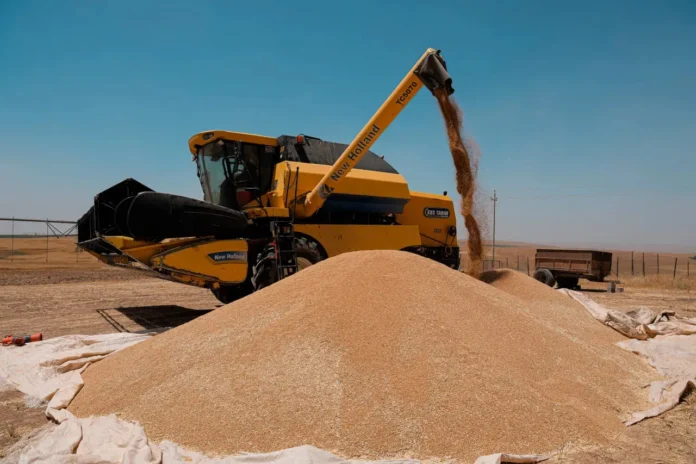The Kurdistan Regional Government (KRG) has decided to sell leftover wheat that Iraq did not purchase from local farmers. This move comes as wheat production in the region exceeds the amount Baghdad agreed to buy. To address the surplus, KRG will coordinate with two internal companies—Khushnaw and Qaywan—to complete the wheat purchase and collection.
Iraq only took 400,000 tons of wheat from farmers in Kurdistan, while actual production has been much higher. Because of this, the regional government stepped in to manage the additional harvest. It announced that the Kurdistan wheat surplus sale would begin soon and continue for one full month.
The Ministry of Agriculture and Water Resources officially notified farmers about the plan. According to the government’s decision, collection will start on July 15 and remain active for 30 days. During this period, farmers can deliver their remaining wheat through the specified companies.
Payment will follow after two months. Farmers will receive their money based on the weight and quality of the wheat they submit. This effort aims to ensure fair compensation while supporting the agricultural economy in the region.
Authorities explained that the wheat must meet Iraqi standards. Grade 1 wheat will sell at 550,000 Iraqi dinars per ton, while Grade 2 wheat will sell at 525,000 dinars per ton. These fixed prices will apply across all silos during the collection phase.
To take part in the Kurdistan wheat surplus sale, farmers must present a receipt proving their wheat quantity already delivered to the silos. Officials will also record any remaining wheat before accepting it. This process helps track inventory accurately and ensures no duplicate payments.
Additionally, the Agriculture Ministry urged farmers to cooperate fully with silo centers. The government emphasized the importance of this cooperation in maintaining transparency and accountability. With strong coordination, officials hope to protect the farming sector and avoid waste.
Through this strategy, KRG aims to stabilize local markets and keep wheat flowing into storage systems. The decision also responds to farmer concerns over unsold crops and financial uncertainty. As a result, the Kurdistan wheat surplus sale may help ease economic pressure during the summer harvest season.

